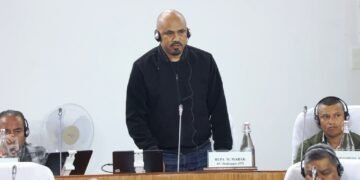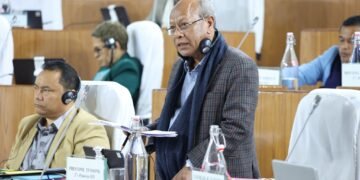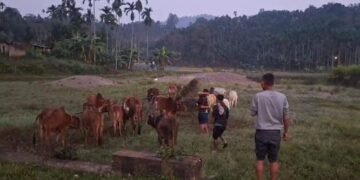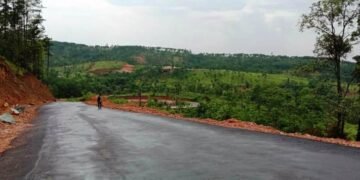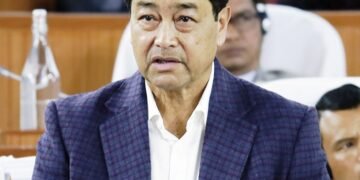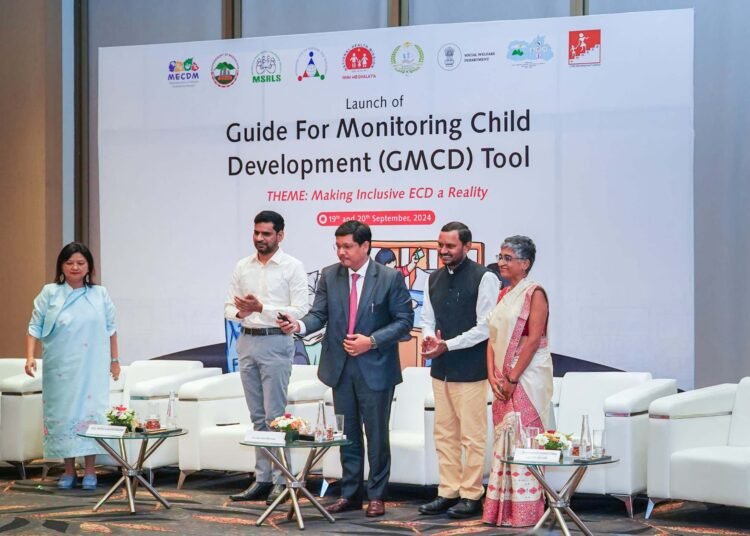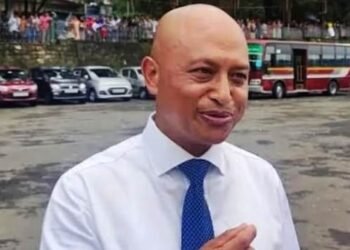To ensure inclusivity in the development of young children in Meghalaya, a ‘Guide for Monitoring Child Development (GMCD) Tool’ under the Early Childhood Development (ECD) mission was unveiled here today.
The tool will be used to monitor, detect, and address developmental delays in children between the ages of 0 and 42 months.
The initiative will see the training of over 15,000 frontline workers—such as ASHAs, Anganwadi workers, community-based Rehabilitation Workers, and Community Gender and Health Activists—using the GMCD. These frontline workers will be equipped with the skills to assess and monitor child development, identifying potential delays early and ensuring timely interventions.
This is a collaborative initiative with the Ummeed Child Development Centre (CDC), a leading organization acknowledged as consultants to the WHO’s Nurturing Care Framework.
Chief Minister Conrad K Sangma who attended the launch function said the GMCD will strengthen the state’s ability to support children with developmental disabilities through targeted training and capacity building for field-level functionaries, enabling early intervention.
He said the innovative tool empowers field workers to track and promote child development, emphasizing early identification of developmental risks and delays. This significant step forward will profoundly impact the comprehensive development of mothers and children, he added.
“The Meghalaya ECD Mission has always been about ensuring the overall well-being of our children, and we are proud of the progress we have made in areas like health and nutrition. But inclusivity is key to ensuring that every child can grow and thrive, no matter their background or challenges,” the Chief Minister said.
He hoped that the partnership with Ummeed CDC marks a new era how to approach early childhood development in Meghalaya, and it is a critical step toward creating a more inclusive future for all children.
Principal Secretary of Health Sampath Kumar said, “This is not just another program with limited targets. The goal is to ensure no child is left behind, and every child in the state is given the chance to thrive.”
Stating that the mission is a blend of both “science and love,” Kumar pointed out that every parent’s natural care for their child can be harnessed with the right support, turning Meghalaya into a model state for child development. “With nearly 49 per cent of the state’s population comprising children, Meghalaya is truly a children’s state,” he added.
Informing the establishment of Human Development teams, which regularly visit vulnerable households, spending time with families to understand their challenges, he said a team recently identified a 12-year-old girl with intellectual challenges who had gone unmonitored since birth. “This highlights the critical need for our new Child Development Monitoring Guide, which will ensure that every child, particularly those between zero and 42 months, receives the attention they need,” he said.
Founder of Ummeed CDC Dr Vibha Krishnamurthy said, “This project is truly pioneering, not just in Meghalaya, but across South Asia and the Asia Pacific.
She emphasized that early detection and intervention are essential for children with disabilities, especially during the critical first three years of brain development when synaptic connections in the brain form at an astonishing rate.
The Guide for Monitoring Child Development (GMCD) is a tool that does not stigmatize, but instead supports caregivers in creating nurturing environments and teaching interventions for optimal child development, she said.
Speaking from Bhopal, Dr Dinesh Arora, Principal Health Specialist, Asian Development Bank (ADB), commended the work being done in Meghalaya and stated, “Meghalaya is perhaps the first state in the Asia Pacific to come out with such visionary thinking,” Dr Arora said. “We are talking about transforming Anganwadi centres into nurturing, learning, and development hubs for children, where learning goes beyond midday meals.”


